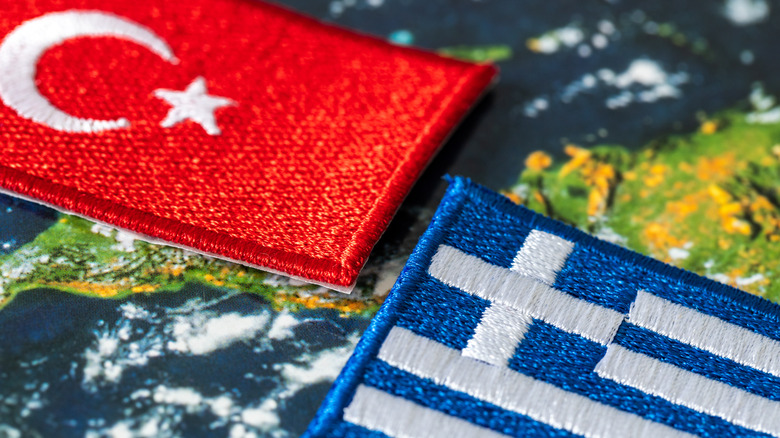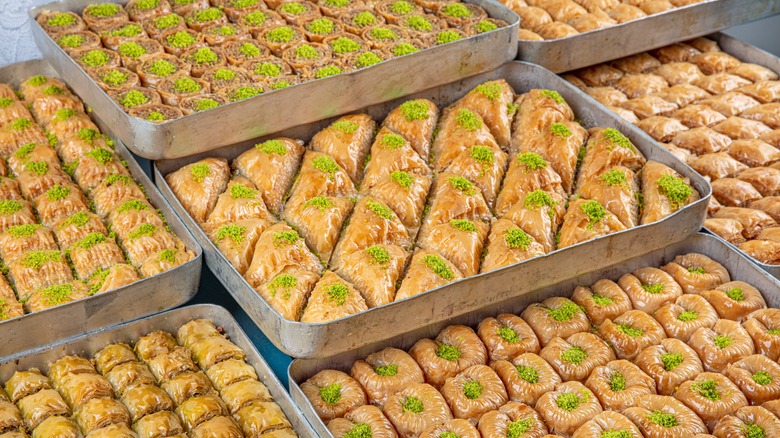The Dessert Debate Greece And Turkey Can't Seem To Settle
Greece and Turkey have had their issues over the years, to put things mildly, so a debate about dessert might seem pretty trivial. A conquered subject of the Turkish-dominated Ottoman Empire for almost 400 years, Britannica states that Greece gained its independence in the 1820s. The sides went on to fight several more wars in the 19th and 20th centuries before settling into their current borders, although the memories of conquest and rebellion, combined with ongoing conflicts over the island of Cyprus, mean old wounds have never fully healed.
That history makes debates over culinary origins all the more fraught. Finding the origins of any one dish is hard enough, but Greece and Turkey spent centuries enmeshed with each other, with all the cross-pollination of culture that entails. Take one look at any list of famous Greek dishes, and you are bound to see things like Dolma that would be just as common on a Turkish table as classics like menemen. A combative relationship means both sides have an emotional stake in laying claim to shared traditions, where getting to claim a dish as "ours," can be a small way of getting one over on the other side. Throw all that together with a dessert that is delicious and universally beloved, and you have a recipe for a fight that won't be settled anytime soon.
Nobody knows for sure where baklava came from
While we can't share either side's animosity, we can completely understand why someone would want to claim baklava for their own. Impossibly flaky phyllo dough, layered with sweet, sticky honey syrup, and the crunch of nuts hits all the dessert pleasure centers at once. According to Fodor's Travels, a forerunner of baklava was being made in ancient Assyria, and that layered dish of unleavened dough, nuts, and honey was brought back to Greece by traders in the 8th century BCE. The Greeks are also the ones credited with the creation of the essential phyllo pastry, with "phyllo" itself being a Greek word.
That is just the beginning of baklava's story, however, as it has gone through multiple iterations over the years, with ingredients like pistachios and rose water showing Persian and Middle Eastern influence. The name "baklava" is of unclear origins but is thought to be based in Turkish. Great British Chefs also notes that the modern version of baklava has been traced to the palace kitchens of the 17th-century Ottoman sultans. Almost every cuisine where baklava is common was once part of the Ottoman Empire, but its myriad styles make it hard to trace. Barring some big historical breakthrough, both Greece and Turkey will continue claiming baklava as their own, but it was more likely the product of cultural interaction. That's not as easy a story to tell, but it is the way so many of our favorite foods were actually born.

